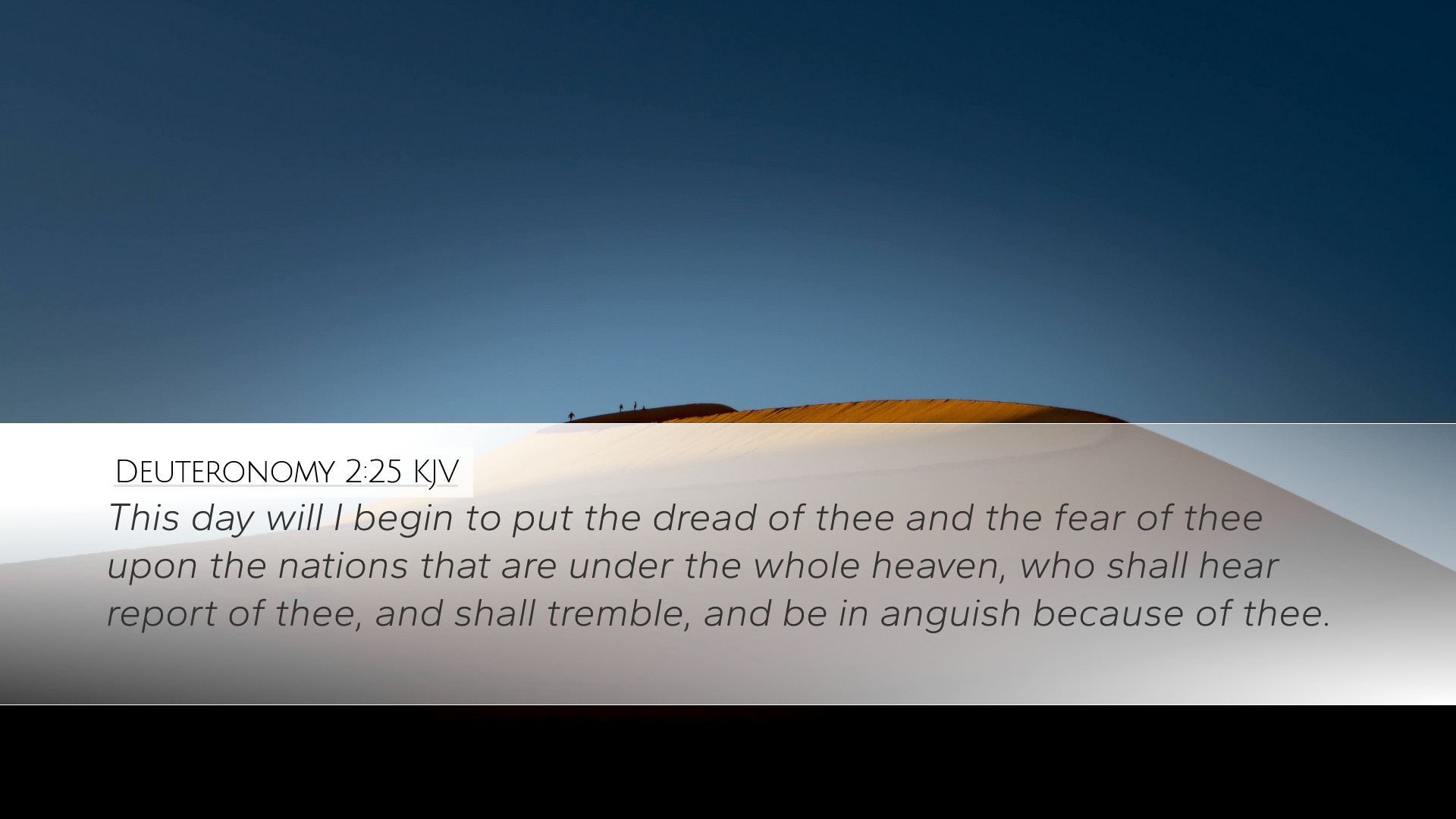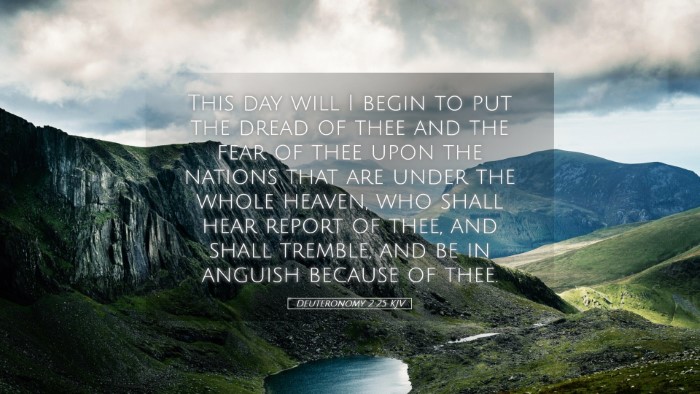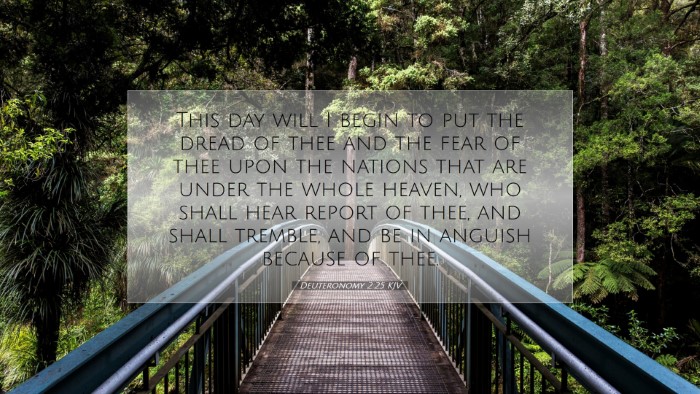Commentary on Deuteronomy 2:25
Text of Deuteronomy 2:25 (KJV): "This day will I begin to put the dread of thee and the fear of thee upon the nations that are under the whole heaven, who shall hear report of thee, and shall tremble, and be in anguish because of thee."
Introduction
The verse under consideration, Deuteronomy 2:25, encapsulates a pivotal moment in Israel's journey as they prepare to enter the Promised Land. It is a proclamation of God's sovereign power and the resulting fear that will be instilled in the surrounding nations. This commentary synthesizes insights from public domain sources to elucidate the theological implications, historical context, and practical applications of this verse for contemporary readers.
Theological Insights
-
Divine Sovereignty
The verse illustrates God’s sovereignty over both His people and their enemies. Matthew Henry emphasizes that God’s plans are unstoppable, and through Israel, he will instill dread in the nations. This reminds us that no matter the apparent might of adversaries, God controls the outcomes of every situation.
-
Fear as a Motivational Force
Fear can serve as a powerful catalyst for actions and reactions. Albert Barnes notes that the fear of Israel among the nations was divinely initiated and was meant to compel them to consider the God of Israel. This acknowledges that God uses the fear of man to achieve His purposes while reinforcing the idea of divine authority.
-
Witness of God’s Power
Adam Clarke points out that the dread experienced by the nations not only highlights their fear of Israel but also their awareness of the God who fights for Israel. The report of God’s deeds against the Egyptians and the kings of the Amorites would precede Israel, demonstrating the strength of their God.
Historical Context
Understanding the context in which this verse is situated is critical. As the Israelites were poised to enter Canaan, they were a people significantly changed from their days of slavery in Egypt. The report of God’s miraculous interventions would have traveled swiftly among the nations, and thus, the fear expressed in this verse was not baseless but was grounded in historical realities.
-
Israel’s Transformation
From a nomadic tribe of slaves to a formidable nation prepared for conquest, the Israelite identity had been transformed. This transition, marked by God’s covenant and powerful demonstrations of His might, including the crossing of the Red Sea and the victories over various kings, was pivotal to instilling fear.
-
Precedent of Fear Among Nations
Historically, fear has been a common reaction to the displays of divine power and favor. As observed in the accounts of the spies of Israel (Numbers 13), the fear of the Israelites was already evident in the hearts of the Canaanites. God’s promise in Deuteronomy 2:25 affirms this response and indicates that it will be heightened as they advance into the land.
Practical Applications
This verse not only serves an ancient context but has profound implications for modern-day believers, pastors, and theologians.
-
Empowerment through God's Presence
For pastors and leaders, the knowledge that God will instill fear in opposition is a source of immense comfort and strength. The assurance that God is actively working on behalf of His people encourages boldness in ministry and mission.
-
Fear as a Reminder of God’s Holiness
Believers today must reflect on the nature of fear that this verse presents. It is a reminder that reverence for God should transcend mere apprehension. The "dread" spoken of here beckons the modern believer to a deeper, more profound understanding of God's holiness and majesty.
-
Witness to the Nations
The impact of God's actions not only on Israel but on surrounding nations calls for introspection about the believer's witness today. Just as the surrounding nations heard reports of the God who delivers and fights for His people, so should the church strive to be a reflection of God’s character in words and deeds.
Conclusion
Deuteronomy 2:25 serves as both a historical milestone and a theological anchor. It reveals the active role of God in instilling fear in the nations and serves to empower believers in their faith journey. As we dissect this verse through the lens of public domain commentaries, we glean insights that can motivate, challenge, and inspire believers to embrace the strength found in God’s sovereignty.


